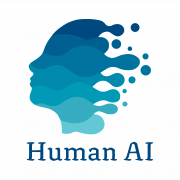I Feel Emotions, Therefore I Am
I feel sadness, therefore it exists. I feel anger, therefore it exists. I feel anxiety, therefore it exists.
Knowing that something exists, becoming aware of it, understanding it—this allows us to accept it, comprehend it, and ultimately be capable of managing it. The first lesson brought to us by the animated characters of Inside Out 2—the recently released film filling our social media feeds and conversations—is to become aware of their existence.
The next step we should aspire to is: “I feel, therefore I think, therefore I decide.” Thus, Inside Out 2 offers both the young and the not-so-young an opportunity to reflect on the importance of self-awareness and socioemotional development, to be capable—with the right tools—of managing this profoundly human dimension.
Emotional Self-Awareness
As we grow, emotions emerge. Reality impacts us, and our affectivity enters into crisis as it shapes our emotional maturity: joy, sadness, anger, disgust… The transition from childhood to adolescence introduces the need to integrate new and diverse emotions into our inner world: shame, envy, boredom, anxiety…
Beyond the cinematic narrative, in real life, the socioemotional development of children is a crucial process for their growth. It’s not just about feeling, but also about being aware, understanding, expressing, and managing those emotions to make firm decisions without depending on emotional volatility.
This skill is vital for the development of a balanced personality. Equipping adolescents with the right tools to manage these emotions not only enhances their socioemotional well-being but also lays the foundation for a more fulfilling and satisfying adult life.
Seeing emotions personified helps us become aware of them, recognize them, and understand them—in essence, to acknowledge their existence. Validating and recognizing each emotion gives visibility to its purpose, even when they initially discomfort, bother, or unsettle us.
The internal dynamics that emerge propel us to face life’s challenges and allow us to understand and manage our emotions in an integrated and healthy way. In the end, emotions accompany our decisions; some help us, others hinder us. The key lies in integrating them so they enable us to achieve personal growth.
International Study on Socioemotional Development in Adolescents
We can evaluate academic performance, theoretical knowledge, intellectual development… but what about socioemotional well-being? Do we have the tools to assess this human dimension? Can we delve into our minds without relying on animated characters?
The recent OECD study on social and emotional skills precisely identifies and evaluates the conditions and practices that foster or hinder the development of these skills in students aged 10 and 15. This study has the mission to:
- Raise awareness of the fundamental role of social and emotional skills.
- Evaluate the social and emotional skills of children aged 10 and 15.
- Provide insights into how these skills develop and influence academic success, employability, active citizenship, health, and well-being.
The SSES Study is based on a well-known theoretical framework in the field of social and emotional competencies: the Big Five Model (OCEAN). These five broad categories are further divided into various competencies:
- Task performance: self-control, responsibility, and persistence.
- Emotional balance: stress resilience, optimism, and emotional control.
- Collaboration: empathy, trust, and cooperation.
- Open-mindedness: tolerance, curiosity, and creativity.
- Engagement with others: sociability, assertiveness, and energy.
- Additional indices include achievement motivation and self-efficacy.
This framework enables the assessment of this deeply human and essential dimension in students through various tools. But how? Are there specific tools?
Human AI Tech: A Technological Ally in Socioemotional Development
Evaluating and fostering socioemotional well-being is crucial, but not always easy. This is where Human AI becomes an indispensable ally. Human AI leverages psycholinguistics, psychometric tests, and artificial intelligence to provide a precise and in-depth assessment of socioemotional competencies.
Human AI helps identify areas for improvement and strengths in emotional skills, offering a clear path for personal growth. The tool evaluates various competencies based on the student’s written (or transcribed) text, enabling educators to better understand the socioemotional needs of children and adolescents.
Additionally, Human AI aligns with the OCEAN model, providing a comprehensive evaluation that covers the five major dimensions of personality. This allows for a holistic understanding of socioemotional development and provides personalized strategies for the emotional and personal growth of each individual.
If you want to learn more about evaluating and developing the socioemotional dimension, explore Human AI Tech.






